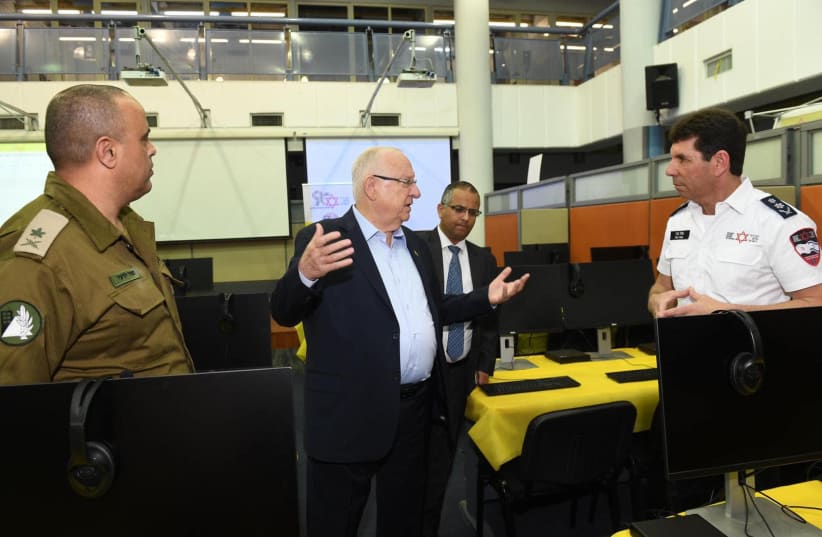"MDA is at the forefront of the corona fight, and as the national EMS organization, it does so with pride, dedication and endless sense of mission. I would like to thank each and every one of you from MDA, whose dedication is a source of national pride," said MDA Director General Eli Bin at the inauguration event.Some optimism during what feels like a dark time.This photo is of a line up at Rabin Square in Tel Aviv, of people standing in line to donate blood.Don't let fear stop you from saving someone's life. Donate today. #coronavirus : Asaf Zamir pic.twitter.com/O5M4Hf6jPd
— Magen David Adom (@Mdais) March 14, 2020
Magen David Adom triples call-fielding capacity to deal with coronavirus
The emergency organization has increased its number of workstations from 93 to 352, as coronavirus related calls have tested the system.
